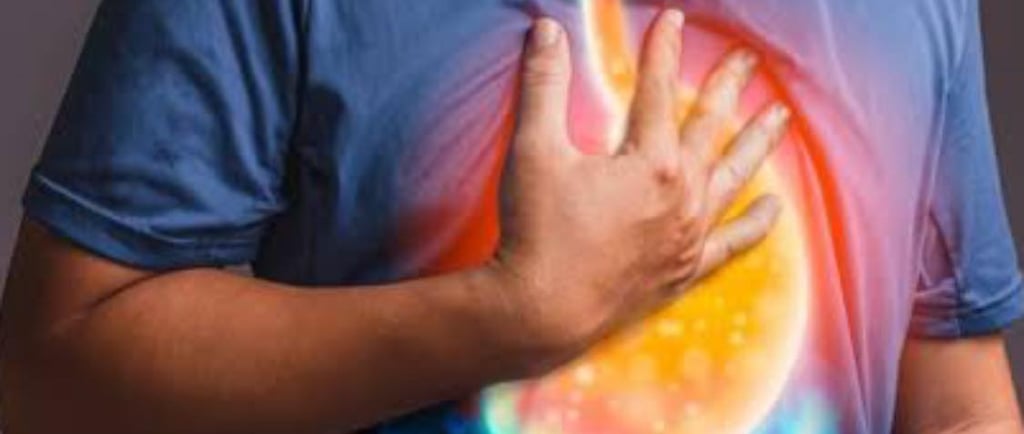Please call on +91 8920418416 for appointments.
Acidity
Dr Abhinav Kumar


ACIDITY
Acidity or acid reflux is a very common condition and is characterized by burning sensation felt around mid chest area, which is caused by the stomach acid flowing back up into the food pipe. The food we eat passes down the oesophagus into the stomach. The gastric glands in the stomach create acid which is necessary to digest the food and to kill any germs. When this acid reflux occurs back into the food pipe it can potentially irritate/damage the lining of our food pipe and cause burning sensation in mid chest.
Often, you may have noticed an uneasy feeling, a kind of burning sensation around the chest and throat, or nausea and vomiting, especially after having a large meal that was possible greasy or fatty. Most people have at some point or the other suffered from acidity, but while it is mainly associated with overeating, in some cases, it can also happen if you are not eating at regular intervals, or are fasting. Whether you are fasting to lose some weight, doing it for any religious reasons or are in the habit of frequently skipping your meals, one thing that can be a common result of all these scenarios is acidity. When you avoid eating, your stomach still produces the digestive juices or the stomach acid that are otherwise used to digest the food that you eat. Once you have an empty stomach, the acid starts to accumulate in stomach, as it cannot get used up in the digestion process as it normally would have. In such a situation, the acid from the stomach starts to travel into your oesophagus, causing pain, burning sensation and discomfort in your chest and throat.
While heartburn should not be ignored, there are many steps you can try that can help resolve or reduce the problem of regurgitation. Eat smaller meals, but more often. A full stomach puts pressure on the lower esophageal sphincter (LES), a valve-like muscle that keeps stomach acid from backing up into the esophagus. Remain upright after meals. Lying down increases pressure on the LES, which makes acid reflux more likely. Avoid late-night eating. Eating a meal or snack within three hours of lying down to sleep can worsen reflux and heartburn symptoms. Leave enough time for the stomach to clear out. Tilt your torso with a bed wedge. Raising your torso up a bit with a wedge-shaped cushion reduces the pressure on the LES and may ease nighttime heartburn. Don't just prop your head and shoulders up with pillows, which can actually worsen reflux. Stay away from carbonated beverages. They cause belching, which promotes reflux of stomach acid. Find the foods that trigger your symptoms and avoid them. Some foods and drinks increase acid secretion, delay stomach emptying, or loosen the LES — conditions that set the stage for heartburn. Common offenders include fatty foods, spicy foods, tomatoes, garlic, milk, coffee, tea, cola, peppermint, and chocolate. Chew sugarless gum after a meal. Check your medications. Ask your doctor or pharmacist if any of the medications you take could worsen acid reflux or inflame the esophagus. For example, tricyclic antidepressants such as amitriptyline loosen the LES and tetracyclines such as doxycycline can cause esophageal inflammation. Lose weight if you need to. Being overweight puts more pressure on the stomach
By adopting a healthy lifestyle, significant difference can be brought about to people with disabling reflux symptoms and decrease their reliance on use of medications that decrease/neutralise acid in stomach.
